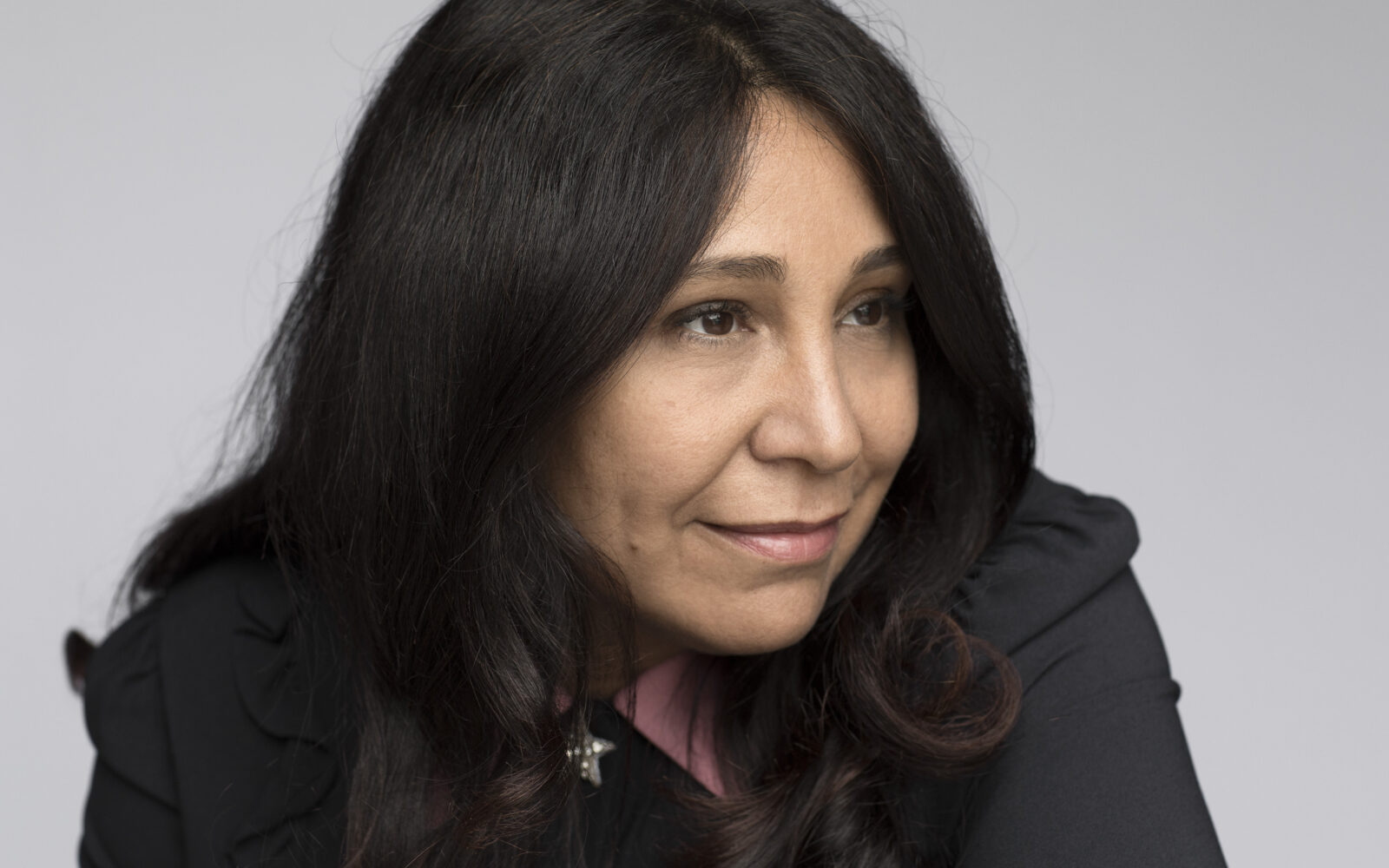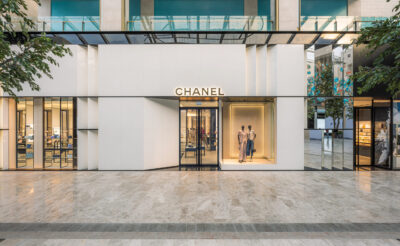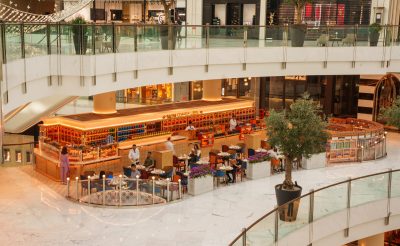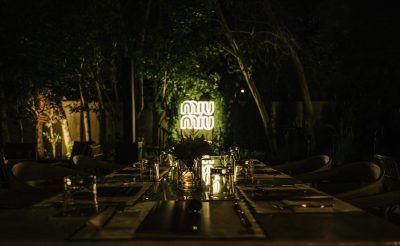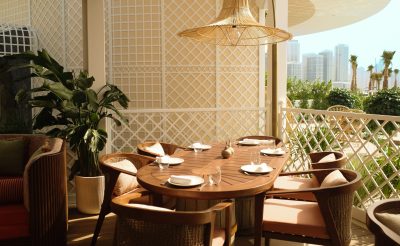In 2012, six years before Saudi Arabia’s cinema ban was lifted, Haifaa Al-Mansour made her directional debut with, Wadjda, the first feature film shot entirely in Saudi Arabia by the country’s first female director. Following the success of Wadjda, Al-Mansour moved from Bahrain to LA to make more boundary-breaking movies in Hollywood and for her latest release, The Perfect Candidate, the director returned to Saudi. Here, Al-Mansour talks to MOJEH about representing women in the Kingdom, inspiring the next generation of filmmakers and pushing Hollywood to evolve.
As the first female Saudi film director, how much responsibility do you feel in bringing stories of the women of Saudi to the mainstream movie-goers mindset?
There is a lot of responsibility. My goal is always to make an entertaining film first, and I want to make films that can be special to Saudis, and also make the medium itself seem more accessible, while still presenting a window to our world to international audiences. I constantly try to look at it from the outside, to the universal themes that it speaks to.
I do feel a responsibility to address the misconceptions that Western audiences have about Saudi women. They seem to have ideas and concepts about women in Saudi but don’t know much about the day-to-day life of women in the Kingdom. They are tough and sassy, and the new generation has a whole new outlook and window to the world. They are empowered and motivated to improve their status within the society in ways my generation could never have imagined. They are survivors.
What was it like first starting out as a film director?
I started to make shorts, just as a hobby or as a kind of therapy. And I’ve loved film since I was little. As a working woman in Saudi Arabia I felt invisible, like I had no voice. I was sick of being ignored and found a voice in film. I didn’t really focus on the hurdles as much as concentrate on each step of the way, accomplishing what I can, and continuing to move forward.
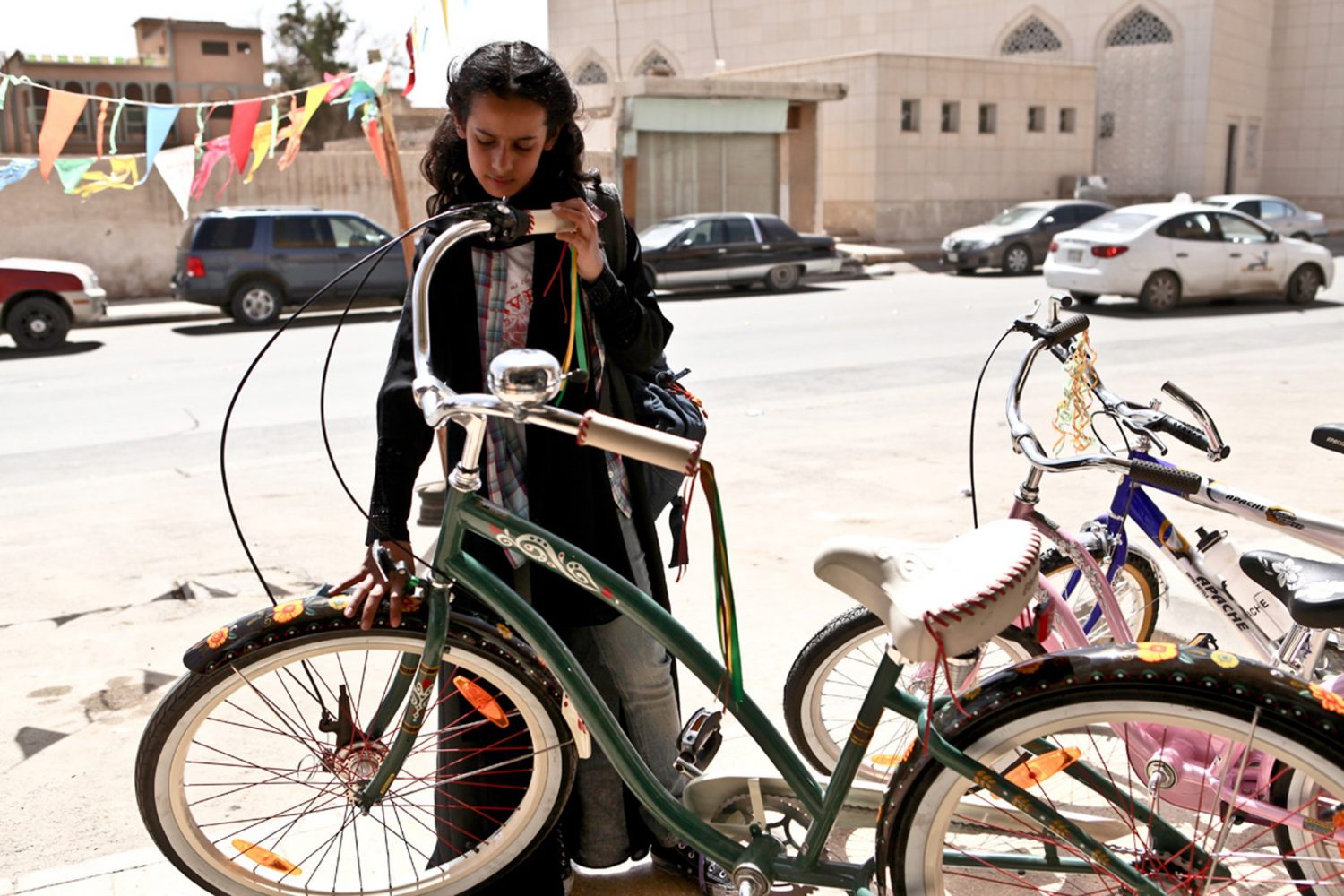
Wadjda
What was the film industry in KSA like for women? And how much does it differ now?
Without the basic infrastructure of a film industry in Saudi Arabia, every aspect of my development as a filmmaker presented challenges. Filming in Riyadh in 2011 was quite a challenge. People aren’t used to having cameras around so we were especially cautious, even though we had permission to shoot publically. For a lot of the outdoor scenes we knew we were going to face a lot of difficulties, from conservative bystanders to sandstorms to nervous partners, so we had to be ready to work with what we had on any given day. We used a handheld camera sometimes to save time and give the actors freedom with their movements. I occasionally directed from a protected spot, like a van, so people wouldn’t see me interacting publically with the crew.
A big problem was casting, since we couldn’t have open casting calls in Saudi because of the sensitivities with women acting. It took a long time to find the lead actress for . Things are way better now, but there are still quite a few challenges as the industry is still in its infancy. We do casting agencies now but still have to depend on word of mouth, so finding talent is still not easy. Finding talent at all levels of production is also a challenge, so we still have to look abroad to fill in some of the gaps.
How does it feel to know that you and your work is so inspirational to so many women, not just in KSA but across the world?
Well, I hope that my work inspires everyone to go out there and work hard to accomplish whatever goals they have for themselves. My advice to everyone, male or female is don’t focus on the things holding you back. It is so easy to look at all of the people, customs, ideas or prejudices working against you. Believe me, I’ve been through it all. You have to tune that out and just focus on the things you need to do to reach your goal. As a woman there will always be people questioning your authority, doubting your ability, and hesitant to believe in your vision or ideas. All you can do is go out there and work hard and prove them wrong.
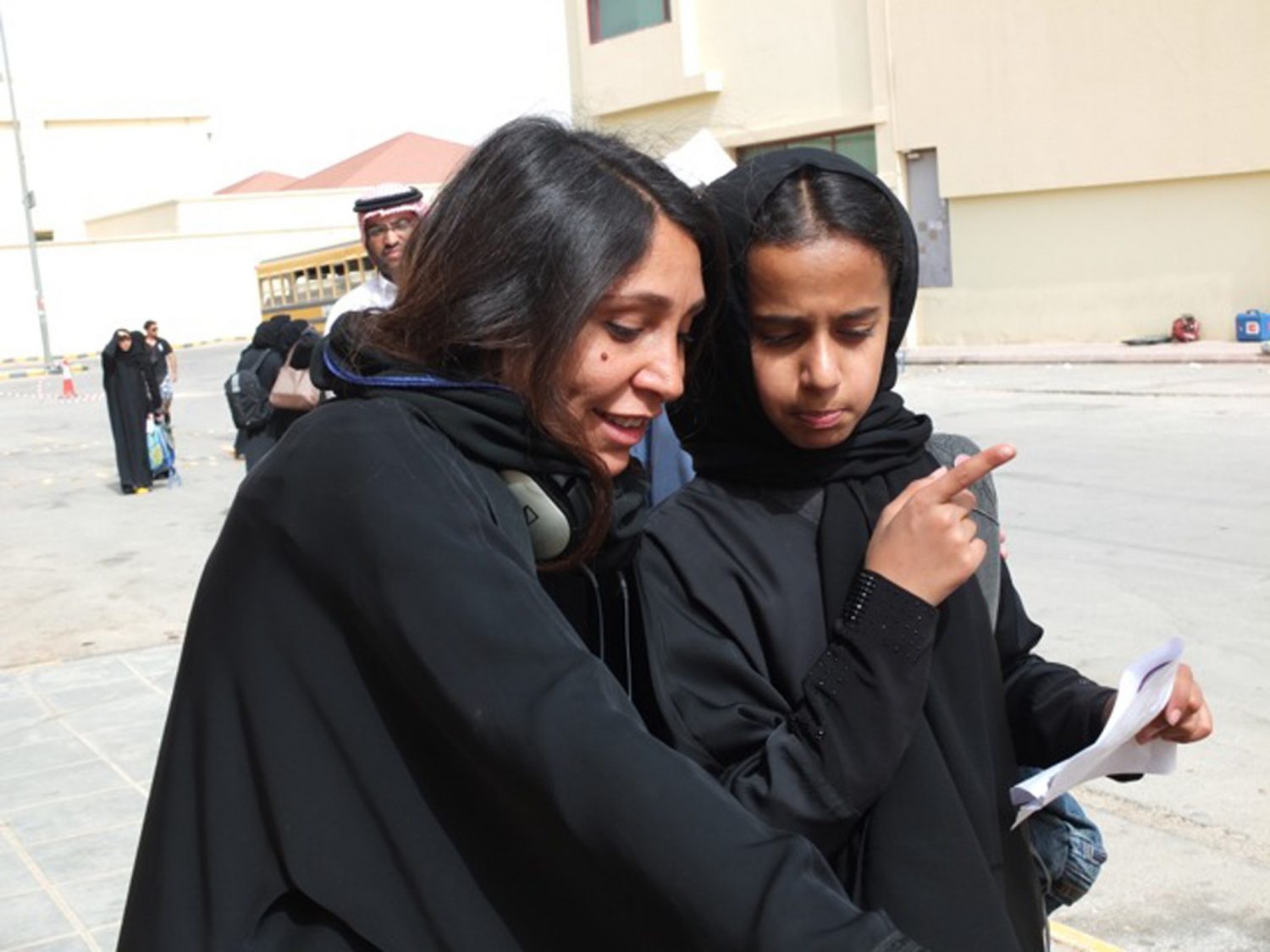
On set of Wadjda
You shot your first film shouting orders from the back of a van in Riyadh – were there huge differences between your first and most recent films and the way you were able to direct them?
Well a lot has changed since I made my first Saudi film. It was incredibly difficult to make a film in 2011, and people were still very hesitant to embrace any public form of artistic expression at that time. Film was especially seen as taboo, and the idea of opening theaters had become a red line that most of us thought would never be crossed. Of course now everything is different, and we have cinemas going up all across the Kingdom. But as I said before, the larger issue of a lack of infrastructure in the film industry remains. We have a lot of work to do in building up the tools and resources necessary to make quality films. It is still a very challenging place to work, and a very closed, insular society, so it was a tough but worthwhile journey.
And it was really great to be out of the van! Being allowed to fully mix with my crew and be fully immersed in the production was amazing. It was also very exciting to have so many enthusiastic young Saudis working on the set. They are the future of the industry, and to see them giving their all to contribute and be a part of making the film was very special for me. We still have a long way to go in building our local crews and expertise, but the enthusiasm is there to build upon. It is an exciting time to be a filmmaker from Saudi Arabia.
Did you think Hollywood is becoming more receptive to Middle Eastern talent, both behind and in front of the camera?
There is a genuine push for diversity in the industry here in LA, so I think there are certainly more opportunities for people from all walks of life now. Having said that, I feel like Middle Eastern filmmakers have a bit of a disadvantage as our films don’t have a strong demographic audience here in the US. Filmmakers from India, Asia and Latin America enjoy wider appeal here as those communities actively support and encourage their films and filmmakers.
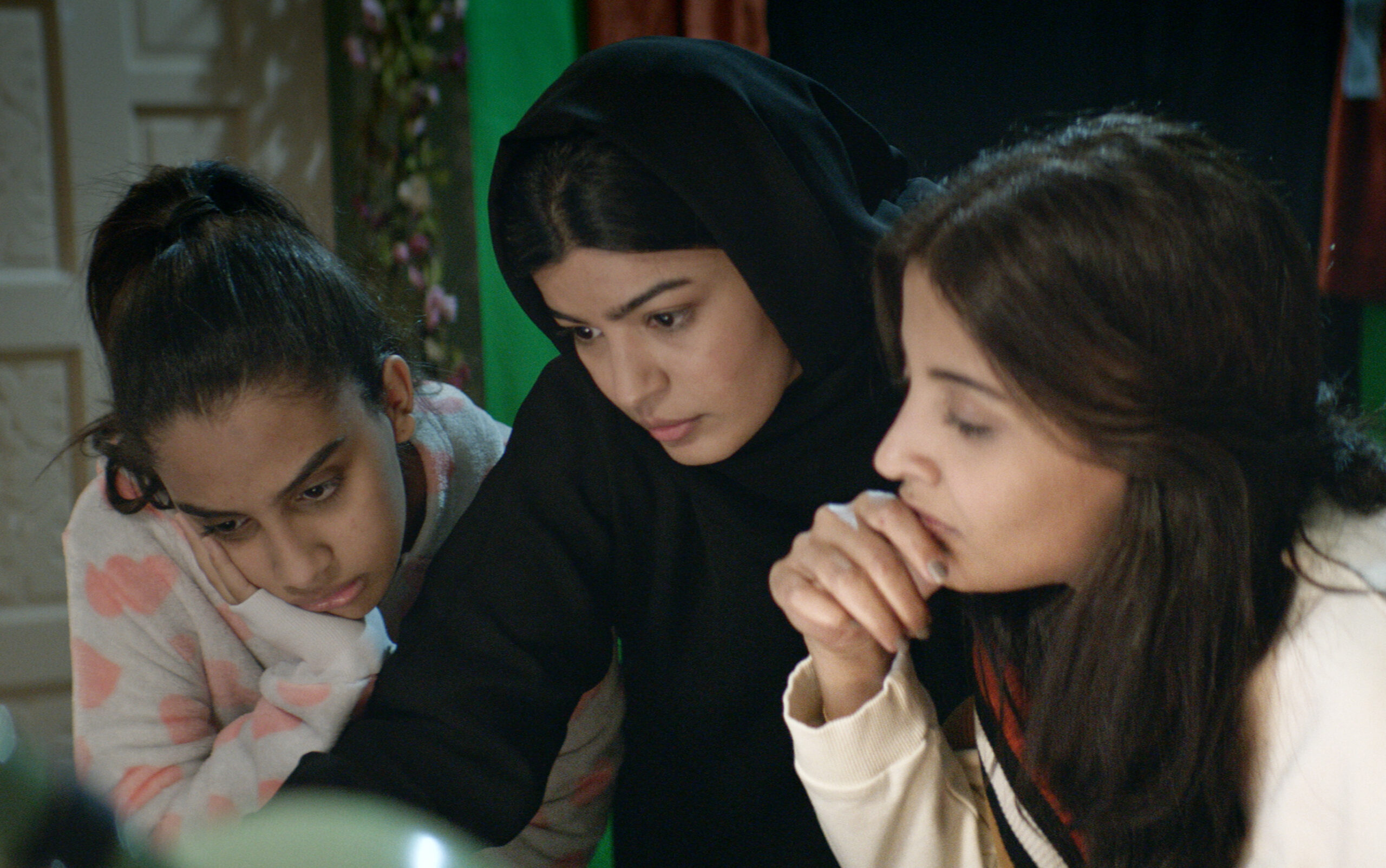
The Perfect Candidate
As Saudi finally starts to give women equal rights and opportunities, how did you navigate telling Maryam’s story in The Perfect Candidate, bearing in mind it covers some topics deemed highly controversial in the kingdom?
When talking about some of these issues it can be very difficult to stay positive, as you don’t want to give viewers the impression that any of these topics are easy to deal with. However, I believe it is very important to stay positive and focus on the ways that hard work and determination can lead to progress, even if it isn’t as big as you had hoped for. That is the message of the movie: that even small gains are important. I also feel like incremental change is the key to progress that really take root in a society. You need people to accept change in their hearts, which isn’t easy, and takes a lot of time and hard work.
Are you ever afraid of approaching certain topics to include in your films?
I try to present my ideas in a way that is acceptable to the society, and I avoid shock value and accusation as much as I can. I want to start a dialogue, and encourage people to open their hearts to new ideas, so I feel very comfortable talking about all sorts of topics within that framework.
How important does the role of costume play to you in your films? It plays a significant part in showing Maryam’s growing strength and determination in this film…
Costumes are extremely important. For us, our clothing says so much about who we are. And we are all encouraged to dress and act the same way, so even the smallest deviation can signify quite a bit of a person’s personality. And yes, Maryam’s character development is specifically illustrated in her costumes as her journey progresses.
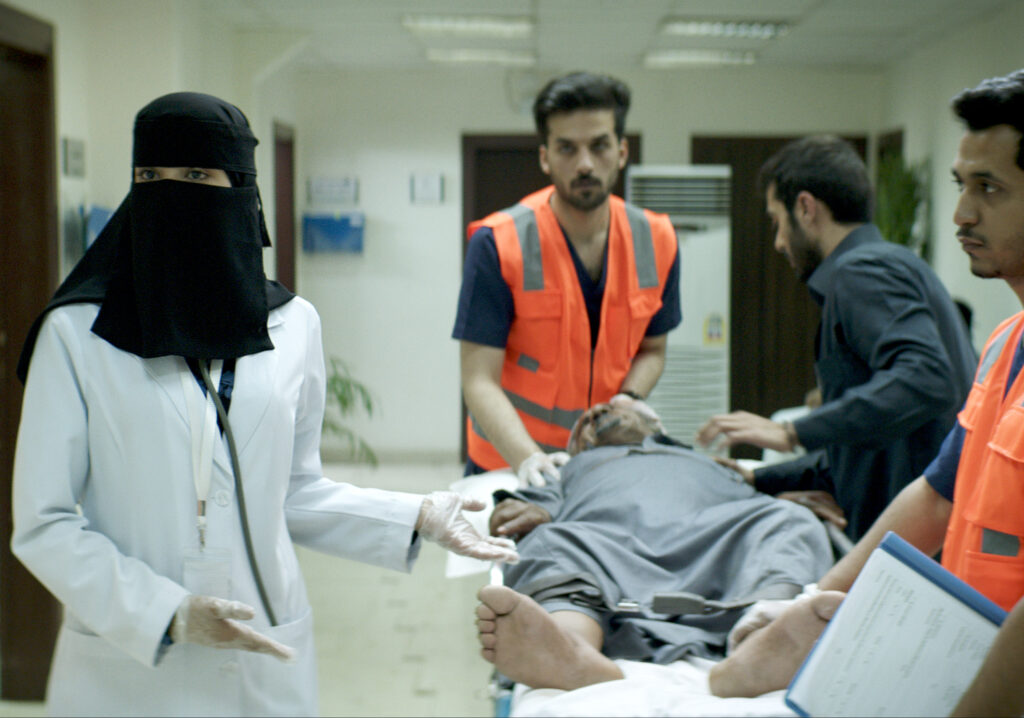
The Perfect Candidate
Do you think that the people of KSA are embracing the changes to their country and society, especially with regards to female equality?
I think that people are very excited about the changes happening in the Kingdom, but at the same time change is hard, and it takes time for people to personally adjust their outlooks to truly embrace progress. Although there are women that would consider becoming a doctor improper, it is a profession that even a lot of generally conservative women would pursue because of the prestige associated with it.
I wanted to create a character that is very much representative of the mainstream mentality of Saudi women. She covers her face and follows the cultural norms of the society, but ends up pushing boundaries because she wants to do her job well. The restrictions that keep her from performing her work in the ways that would best benefit the society frustrate her and force her to think outside the box. She is not a rebel for the sake of rebellion, she is someone that knows that her work can make the country a better place and simply wants to remove the barriers that keep her from accomplishing her mission. I believe strongly that this is the way that true change comes to a society, through hard-working people who simply want to be able to reach their highest potential.
Why did you choose to work with non-professional actors on this movie? And what was it like to work with them?
We had a mix of professional and non-professional actors. I enjoy working with non-professional actors because they bring in some of themselves to the parts. So a lot of the movements and mannerisms are things that they brought from their own lives. For example, when the band is saying goodbye at the end of their tour, I gave them my directions and told them how I would like to see it performed, but then they all brought in some of their own things: like a kiss on the forehead, which was a really nice and sincere gesture. It was very real.
Are there any theatre schools in Saudi? Or would an aspiring actor need to train out of the country
We are getting there. It was not possible before, but schools for the arts are opening up quickly, and we are building a strong talent base across all disciplines in art, media, theater and more. It is truly incredible for me to see this happening in the Kingdom, and I can’t wait to see what these young people go on to create.
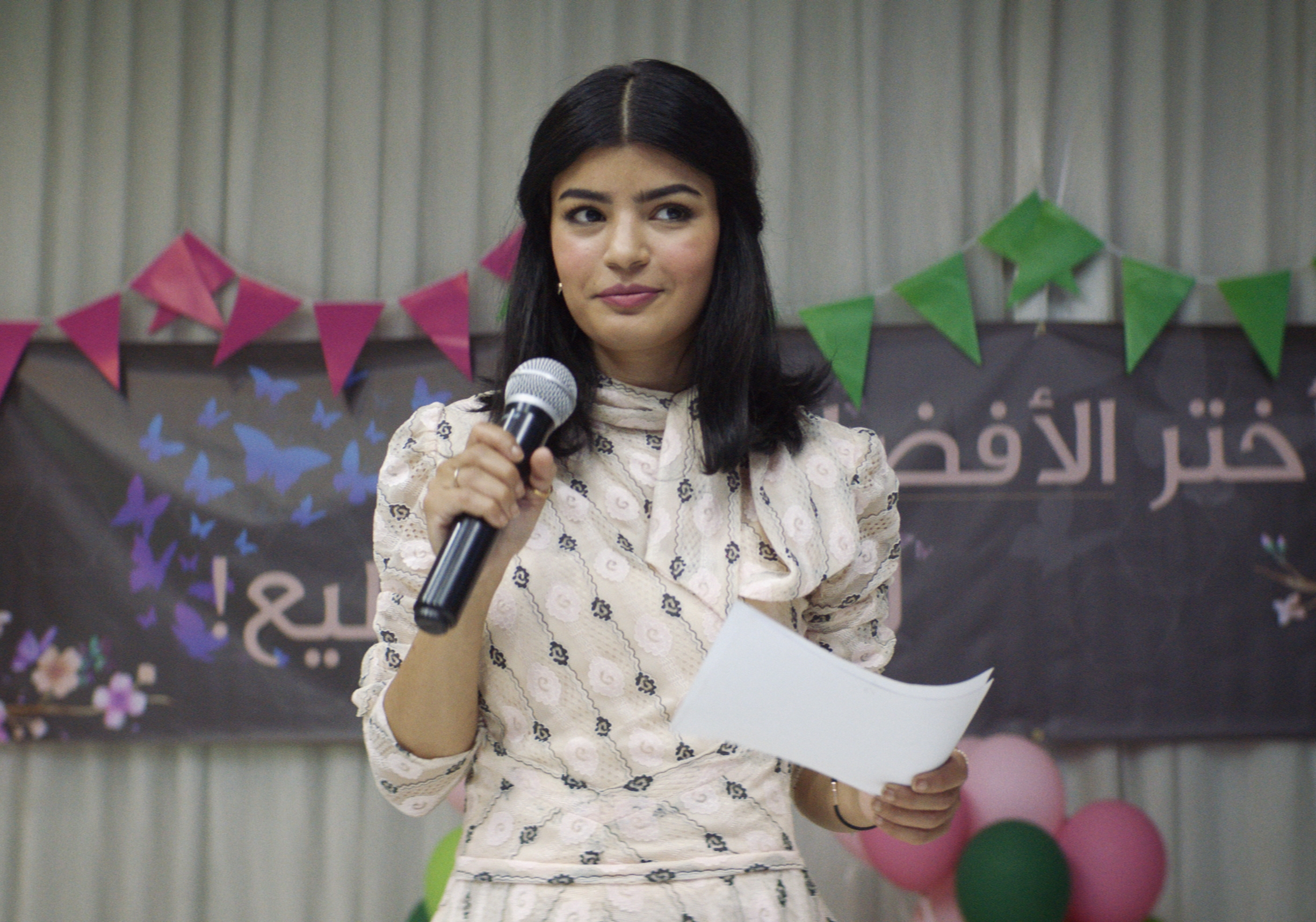
The Perfect Candidate
What has the reaction been to your movie from the region since it was released on OSN?
It has been very positive. I hope my film inspires local audiences to talk about the issues at the core of the story. The film has been embraced internationally and played in the main competition of major festivals from Venice, to London, Busan and Sundance, so I am glad that we are able to finally release the film exclusively in the Middle East on OSN Store and OSN streaming in July.
What is the message that you want to send to the women of Saudi who want to see their country progress?
Go out there and take advantage of the opportunities you have! All of the recent breakthroughs that have come for women in Saudi Arabia are important and huge, seismic shifts for the region. That is why I chose to start the film with the main character driving a car. It is something that would have seemed impossible even a year ago. But now it is up to women to accept these changes in their own lives and take the risks that come with trying something new. The pressure is no long on progressive women, who have pushed for these changes, it is now on the middle-of-the-road people, who are reluctant to embrace change. I hope more women will start driving, and working in mixed environments with men, or traveling, or just doing the things that make them happy. Now is the time!
Where do you think the KSA film industry will be in 20 years time?
I think our entertainment industry has the potential to be one of the biggest in the world. The investments being made in the field now are going to pay off exponentially in twenty years. As our theater count grows, our audiences will be a major factor in the global box office. And there are cinemas going up all over the Kingdom. When they opened the first theater in the Eastern Province the theater put up a huge billboard with my picture on it. My family was sending around the picture of it and it was an incredibly emotional moment for me. To be celebrated publicly at home, as an artist and a woman, is something I still have a hard time believing is real. I am so excited to screen the film there.
Do you see Hollywood working with the Middle Eastern film industry more in the future? How will this be achieved?
Hollywood responds to the market, so the more our market grows the more integration there will be between the industries. We have to push ourselves to make better and better content that can travel beyond our region and make it accessible to audiences around the world. We can carve out our own niche in offering films that present our unique perspective and history to audiences that our curious about our way of life and point of view. And again, our audiences will soon become a major box office for international films, which means Hollywood (and everyone else) will start actively trying to make films for our region. That is very exciting, and I look forward to watching our industry grow and expand.
Read Next: The Perfect Candidate and four other films to watch by Haifaa Al-Mansour
- Interview by Lucy Wildman

